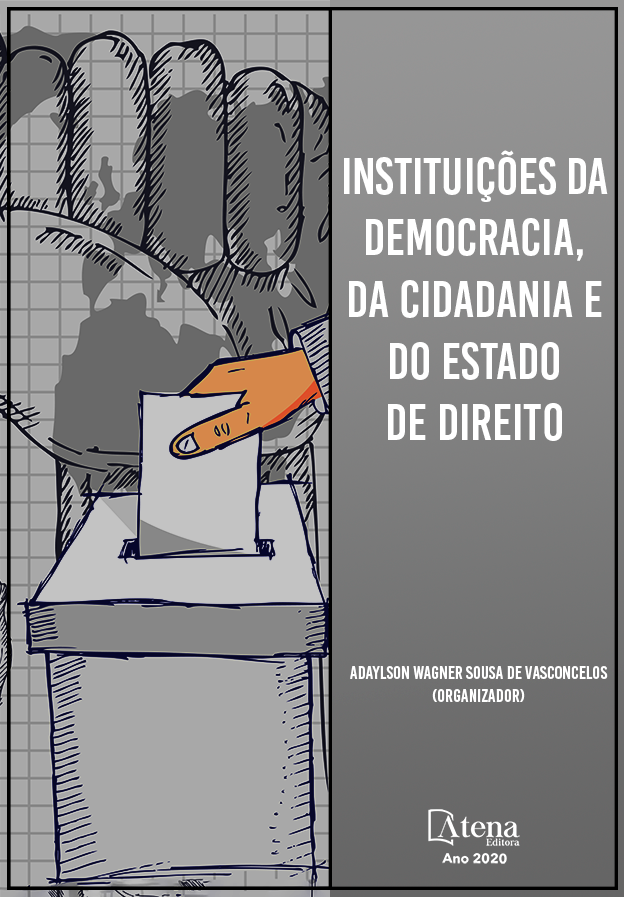
A EXTRAFISCALIDADE TRIBUTÁRIA COMO INSTRUMENTO DE REDUÇÃO DA POBREZA E DAS DESIGUALDADES SOCIAIS EM TEMPOS DE CRISE SOCIOECONÔMICA DO ESTADO
O presente estudo discute a relação que existe entre a crise econômica que afetou o mundo em 2008 e atual crise socioeconômica que assola o Brasil nos últimos tempos. Questiona-se, como problemática, se em tempos de crise econômica o Estado está legitimado a mitigar direitos já conquistados com o objetivo de restabelecer a economia ou se em tempos de crise ele deve se preocupar em elaborar e efetivar políticas públicas visando proteger à dignidade humana. Cogita-se que na atual crise o Brasil acabou por priorizar o desenvolvimento apenas econômico, deixando de investir no seu maior patrimônio que é a pessoa humana, hipótese esta confirmada com as medidas políticas que foram adotadas, sob o argumento de retirar o Brasil da crise, tais como limitação dos investimentos públicos em saúde e educação, bem como com a reforma trabalhista e a atual proposta de reforma da previdência. Essas políticas acabam por inviabilizar o pleno desenvolvimento humano, tendo em vista que tais cortes de investimento públicos nestas áreas acabam por aumentar a pobreza e as desigualdades sociais, impedindo que haja o pleno desenvolvimento das capacidades humanas necessárias para que as pessoas possam ter uma vida digna. Além disso, verifica-se que a crise econômica acaba por influenciar o governo nas decisões que este tem que tomar para retirar o país da crise. Busca-se, então, reconhecer a importância de uma reforma tributária no Brasil para que os tributos sejam utilizados em sua função extrafiscal, visando à redução da pobreza e das desigualdades sociais. Para tanto, utilizou-se os métodos crítico, de revisão bibliográfica e análise documental para se confirmar a importância de uma alteração da estrutura política e tributária do Brasil, visando a máxima proteção à dignidade humana por meio da concretização dos direitos fundamentais.
A EXTRAFISCALIDADE TRIBUTÁRIA COMO INSTRUMENTO DE REDUÇÃO DA POBREZA E DAS DESIGUALDADES SOCIAIS EM TEMPOS DE CRISE SOCIOECONÔMICA DO ESTADO
-
DOI: 10.22533/at.ed.4882003116
-
Palavras-chave: Extrafiscalidade; Pobreza; Desigualdades Sociais;Crise Socioeconômica; Reforma tributária.
-
Keywords: Extrafiscality; Poverty; Social differences; Socioeconomic Crisis; Tax reform.
-
Abstract:
This study discusses the relationship that exists between the economic crisis that affected the world in 2008 and the current socioeconomic crisis that has been plaguing Brazil in recent times. It is questioned, as a problem, if in times of economic crisis the State is legitimate to mitigate rights already conquered in order to restore the economy or if in times of crisis it should be concerned with elaborating and implementing public policies aiming to protect human dignity . It is thought that in the current crisis Brazil ended up prioritizing only economic development, failing to invest in its greatest asset, which is the human person, a hypothesis confirmed with the political measures that were adopted, under the argument of removing Brazil from the crisis , such as limiting public investments in health and education, as well as labor reform and the current pension reform proposal. These policies end up preventing full human development, considering that such cuts in public investment in these areas end up increasing poverty and social inequalities, preventing the full development of human capacities necessary for people to have a dignified life. . In addition, it appears that the economic crisis ends up influencing the government in the decisions that it has to take to remove the country from the crisis. It seeks, then, to recognize the importance of a tax reform in Brazil so that taxes are used in their extra-fiscal function, aiming at the reduction of poverty and social inequalities. To this end, we used the critical methods, bibliographic review and document analysis to confirm the importance of changing the political and tax structure of Brazil, aiming at maximum protection of human dignity through the realization of fundamental rights.
-
Número de páginas: 15
- Raphael Malaquias de Sá de Souza
- Malena Aquino da Silva
- Ruth Ramos Dantas de Souza
- Daniella Souza Santos de Carvalho
- Darlan Alves Moulin


